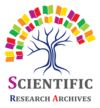Comparative analysis of dietary diversity and food consumption patterns among public and private University Students in Bangladesh
1 W A N Research & Consultancy, Dhaka, Bangladesh.
2 Society for Health Extension and Development, Cox’s Bazar, Bangladesh.
3 Islami Bank Hospital, Mirpur, Dhaka, Bangladesh.
4 Daffodil International University, Dhaka, Bangladesh.
Research Article
International Journal of Biological and Pharmaceutical Sciences Archive, 2023, 06(02), 191–198.
Article DOI: 10.53771/ijbpsa.2023.6.2.0123
Publication history:
Received on 15 November 2023; revised on 27 December 2023; accepted on 29 December 2023
Abstract:
Introduction: University students represent a crucial period for establishing long-term dietary patterns and are particularly susceptible to nutritional challenges due to lifestyle changes. This study focuses on the dietary habits of university students in Bangladesh, a demographic undergoing significant changes in eating patterns amid urbanization and exposure to Westernized food cultures.
Aim: This study aims to investigate the socio-demographic characteristics and dietary patterns of university students in Bangladesh, distinguishing between public and private university attendees.
Methods: A descriptive, cross-sectional study conducted over four months at two public and two private universities in Bangladesh. The sample consisted of 296 students, selected through systematic random sampling. Data collection involved face-to-face interviews using a semi-structured questionnaire. Dietary diversity was assessed based on the last 24 hours’ intake, and household food consumption scores were calculated over the past 7 days. Statistical analysis was performed using SPSS (Version 17) and Stata (Version 13).
Results: The study consists of approximately equal representation of students from public (48.63%) and private (51.37%) universities, with a slight male majority (53.87%). Significant economic disparities were found between students from public and private universities, impacting their monthly expenditures and dietary habits. Students from private universities displayed a more diverse diet, especially in higher consumption of vegetables, fruits, and protein sources. A notable correlation was found between economic status and dietary diversity, with private university students having higher food consumption scores.
Conclusion: The study highlights substantial socio-economic disparities between students from public and private universities in Bangladesh, significantly influencing their dietary habits. Findings emphasize the need for targeted nutritional interventions and educational programs to mitigate the gaps in dietary diversity and health among university students. The study provides valuable insights for public health policymakers and educators in understanding and addressing the nutritional needs and challenges of university students in Bangladesh.
Keywords:
Dietary Habits; University Students; Socio-Economic Disparities; Bangladesh; Nutritional Diversity.
Full text article in PDF:
Copyright information:
Copyright © 2023 Author(s) retain the copyright of this article. This article is published under the terms of the Creative Commons Attribution Liscense 4.0
